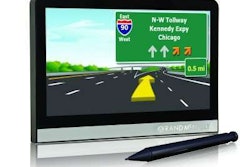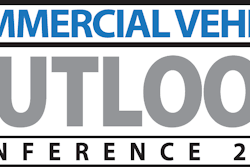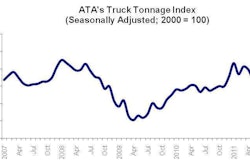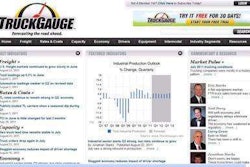
RigDig says its truck history reports help fleet managers, dealers and owner-operators make informed used truck purchase decisions. By logging onto www.rigdig.com and typing in a truck’s vehicle identification number, truck buyers and sellers can get critical information to help make smart buys in an easy-to-use report.
“The launch of RigDig marks the first time buyers can check a truck’s background using a service designed specifically for the commercial truck market,” says James Vogel, general manager. “By meshing a variety of data sources that track junk and salvage vehicles, total loss insurance claims, title and odometer brands, accidents, inspections, ownership, cargo hauled and CSA scores, RigDig gives truck buyers a level of confidence in making purchase decisions that’s unprecedented.”
RigDig was developed by the researchers at Equipment Data Associates, a division of Randall-Reilly Business Media & Information that has been compiling equipment-related information in trucking, construction and other industries for more than 20 years. Beginning in 2008, the experts at EDA, in conjunction with Randall-Reilly’s Trucking Media Group, conducted more than 50 in-depth interviews with companies operating in the trucking industry, analyzed every facet of the vehicle history reports designed for the consumer vehicle market, and determined that there wasn’t a good source of information available for consumers on used commercial vehicles.
“That put us on a mission to arm the used truck buyer with information to help them make a more informed purchase decision,” Vogel says. “Three years later, after building, acquiring and partnering with the best information sources available, we were ready to launch RigDig.”
RigDig reports can protect the used truck buyer from making bad investments by alerting them when the truck may be:
• Junk or salvage yard vehicle. Through RigDig’s partnership with the Department of Justices’ National Motor Vehicle Title Information System, RigDig can alert unsuspecting buyers to trucks that may have shown up at a junk or salvage yard. Often, junked vehicles are rebuilt, but these rebuilt vehicles always aren’t identified with a “Rebuilt” title brand. Also, VIN cloning is a white-collar crime that begins by using VINs from junked vehicles. RigDig helps protect the consumer from purchasing, selling or insuring a VIN cloned vehicle;
• Total loss insurance claims. Also provided through RigDig’s integration with NMVTIS, RigDig can help the used truck buyer know if a vehicle was written off as a total loss before they buy or sell;\
• DMV title brands, such as junked, salvage or flooded. RigDig’s partnership with the Department of Justice’s NMVTIS database allows RigDig to deliver title information in RigDig in real time. This can protect the consumer from purchasing a vehicle that was just stamped with a “Salvage” brand earlier in the day;
• Involved in a federally recordable accident. These are the most severe accidents that resulted in an injury, fatality or a tow-away. RigDig’s database includes more than 639,000 federally recordable tow-away accidents for Class 3-8 trucks (for valid VINs) since 2000. Of these accidents, more than 23,000 resulted in a fatality;
• Involved in a less-severe nonfederally recordable accident. Identified through a post-accident inspection. RigDig’s database includes more than 139,000 post-accident inspections for Class 3-8 vehicles since 2000;
• Properly maintained. Multiple inspection or out-of-service violations identified in a RigDig report may indicate poor vehicle maintenance that could make the vehicle less safe or result in higher repair costs. RigDig users also can learn the name and safety rating, CSA vehicle maintenance status, the name of the carrier/owner of the vehicle and the type of operation in which it was used. Carriers with nonsatisfactory safety ratings may not maintain their vehicles as well as those with satisfactory ratings. Vehicles involved in severe-service applications may have seen years of hard use;
• Truck specifications. RigDig reports also provide a truck’s original factory specifications so users can see if a truck has been modified before they take it as a trade-in or purchase it at auction; and
• UCC liens. Buyers also can check to see if any Uniform Commercial Code liens were tied to a truck’s VIN.
A single report can be purchased for $34 each, and a pack of three reports can be purchased for $60. Also, there are monthly subscription plans available for dealers, fleets, insurance companies, finance companies, warranty companies or any other company or individual whose business is impacted by used-truck purchase transactions. For more information: www.rigdig.com











